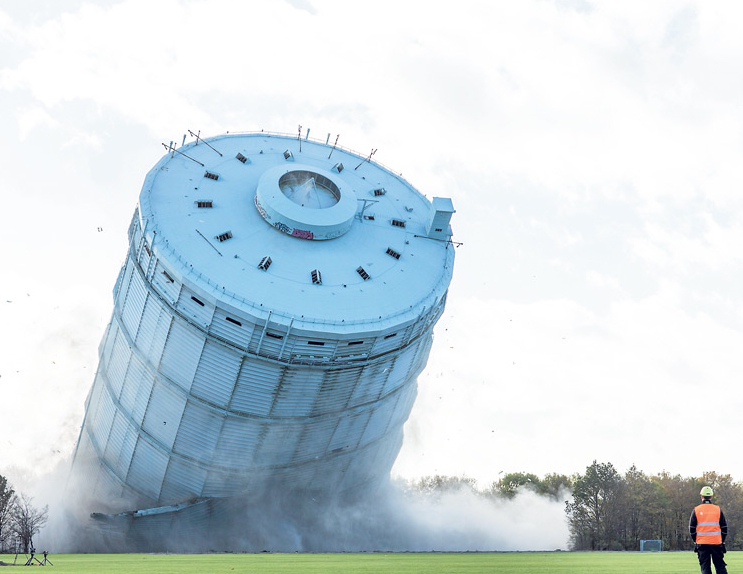Some recent news headlines paint an alarming picture:
- “Cement worker’s body discovered in Bristol silo collapse“
- “Worker presumed dead after fall in silo roof collapse in Medley“
- “Two workers killed when silo collapses in Nueva Palmira“
- “Truck driver killed after salt bin collapses in Lansing”
 All of these fatalities involved failure of some or all of a silo structure.
All of these fatalities involved failure of some or all of a silo structure.
There have been many more silo failures that, fortunately, did not involve loss of human life; however, the economic losses and disruption of plant operations are often considerable. For example, the collapse of a 10,000 tonne coal storage silo at a huge power plant in South Africa resulted in a sharp drop in power output, from almost 4,000 MW to just 600 MW. This plant supplies roughly 10% of the country’s electricity capacity, resulting in rolling blackouts across the country between 8am and 10pm for many days due to the silo failure.
Why do such failures still occur? The reasons are varied but generally boil down to one or more of the following:
- Loads exerted on silo structures are not well defined in design codes
- Mistakes are sometimes made during construction that may go unnoticed until the silo fails
- Alterations are often made to silos without first evaluating the consequences to the structure
- Maintenance of silos is often overlooked, postponed, or performed shoddily
Simple visual inspection is not always enough for a complete picture of what is happening to a silo that has been in service for years. The inspection process varies with each silo type, ranging from using ultrasound equipment on structural members to metallurgical analysis. It doesn’t matter if your silo is welded, bolted or concrete in construction all should be inspected regularly not just before any changes are made to them.
Jenike & Johanson has inspection procedures that can be implemented on a routine basis to assess the condition of a silo to avoid failures. Our engineers are at the forefront of developing methods to calculate material-induced loads on silo structures of virtually any geometry. In addition, our structural design group has experienced engineers; who know how to correctly design silos to provide safe, long, productive life.





